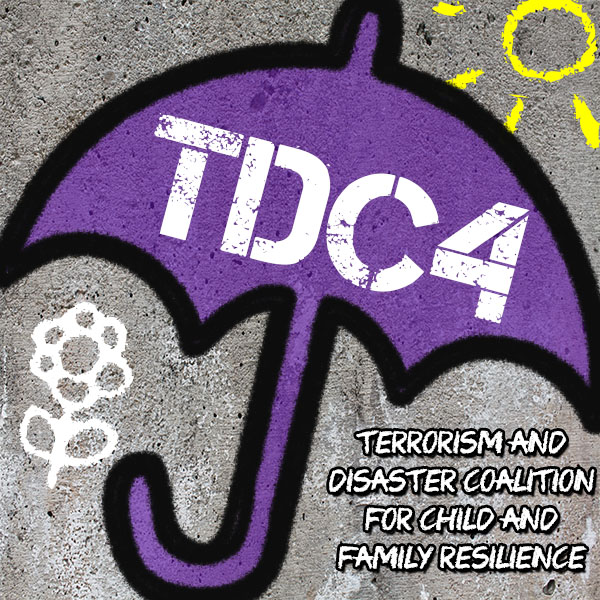News and Media Appearances
-
June 1st, 2018
NOLA.Com: "The Children of Central City"
"Joy Osofsky, professor of Pediatrics and Psychiatry at LSU Health Sciences Center, operates one of the last remaining mental health programs in the city that treat children under the age of 6. The decision to end ECSS is representative of an overall undervaluing of the work they do and the children they serve, who are nearly all poor and black, she said.“Every time there is a shooting you're going to hear, ‘We need more mental healthcare.' That will last for about three days,” Osofsky said. “For too long, there was the idea that young children wouldn't notice trauma, that it wouldn't have an effect and they would just get over it. The evidence is just the opposite.”
-
December, 20th, 2017
The Hill: "Children- The Smallest Victims- Need Extra Help After Disasters"
"American families have faced some of the worst natural disasters in our country's history this year, as massive hurricanes, multiple tornadoes, and raging wildfires wreaked havoc on communities large and small.While recovery is daunting, the physical part of rebuilding is obvious and visible — restoring power grids, repairing and reconstructing homes, schools, and businesses. Another part of recovery is just as crucial, though more easily missed — the mental health of those affected. Least visible of all is the emotional toll on babies and toddlers, who absorb everything around them but cannot yet verbalize their distress and fears. As Congress considers recovery funding for disaster-affected areas, Members need to keep infants and toddlers' long-term cognitive, social, and emotional development in mind."
-
October 5th, 2017
NPR: "How Teachers and Schools Can Help When Bad Stuff Happens"
"Joy Osofsky, professor of pediatrics and psychiatry at Louisiana State University:And we're here to be supportive of you and understand the kinds of things that you've gone through. And we're going to work to establish the routines in school that you're used to, which we know is very important in adapting to the new situation. But we also want you to know that we're available to listen to you if that would be helpful."
-
September 11th, 2017
NPR: "In Houston, Children Are Likely to Experience Trauma From Hurricane Harvey"
"Students are returning to school in Houston, just a few weeks after Hurricane Harvey flooded the city. NPR's Ari Shapiro talks with Joy Osofsky, a professor of pediatrics and psychiatry at Louisiana State University, about the trauma that children experience after natural disasters."
-
September 3rd, 2017
NPR: "After Weathering The Storm, Hurricane Harvey Victims Still Cope With Trauma"
" NPR's Michel Martin speaks with Louisiana State University professor Joy Osofsky to better understand the grief and trauma victims experience after a natural disaster. "
-
August 30th, 2017
The Atlantic: How Schoolchildren Will Cope With Hurricane Harvey
"Class is canceled for at least a week in Houston, and the disaster could upend academic success.... Joy Osofsky, a professor of pediatrics and psychiatry at Louisiana State University, was involved in providing trauma and mental-health support to schools in the wake of Katrina. The severity of the disaster's impact on individual children, she said, was directly correlated with the stability of their broader environment. "
-
August 29th, 2017
Newsweek: Hurricane Harvey Hits Texas Schools With Flooded Classrooms and Major Delays
"Once teachers return to school, they need to remember to take care of themselves, Louisiana psychologist Rick Costa tells Newsweek. He helped author a 2015 research paper likening them to first responders—“running toward disasters when everybody else is running away.” "
-
August 27th, 2017
WWLTV: Harvey: A grim reminder of Hurricane Katrina for many New Orleanians
""The people who evacuated from here and have moved to Houston, naturally, this is going to bring up fears for them again," Dr. Joy Osofsky said. Osofsky, Professor of Pediatrics and Psychiatry at the LSU Health Sciences Center, says those fears are hard to re-live."Certainly the pictures on television can make people feel very frightened again and also can make them feel anxious. You can have difficulty sleeping. You can have nightmares and that response is quite normal," Dr. Osofsky said..” "
-
May 2017
LSU Health New Orleans Offers Expertise to Cope with Terrorism
""Faculty in the Department of Psychiatry at LSU Health New Orleans School of Medicine offer their expertise to help people cope with the latest act of terrorism that occurred in Manchester Monday night. Since Columbine, they have been working with colleagues from around the world to develop strategies to help people and communities recover from acts of terrorism. The Department has now established the Terrorism and Disaster Center for Child and Family Resilience as a resource for families.” "

